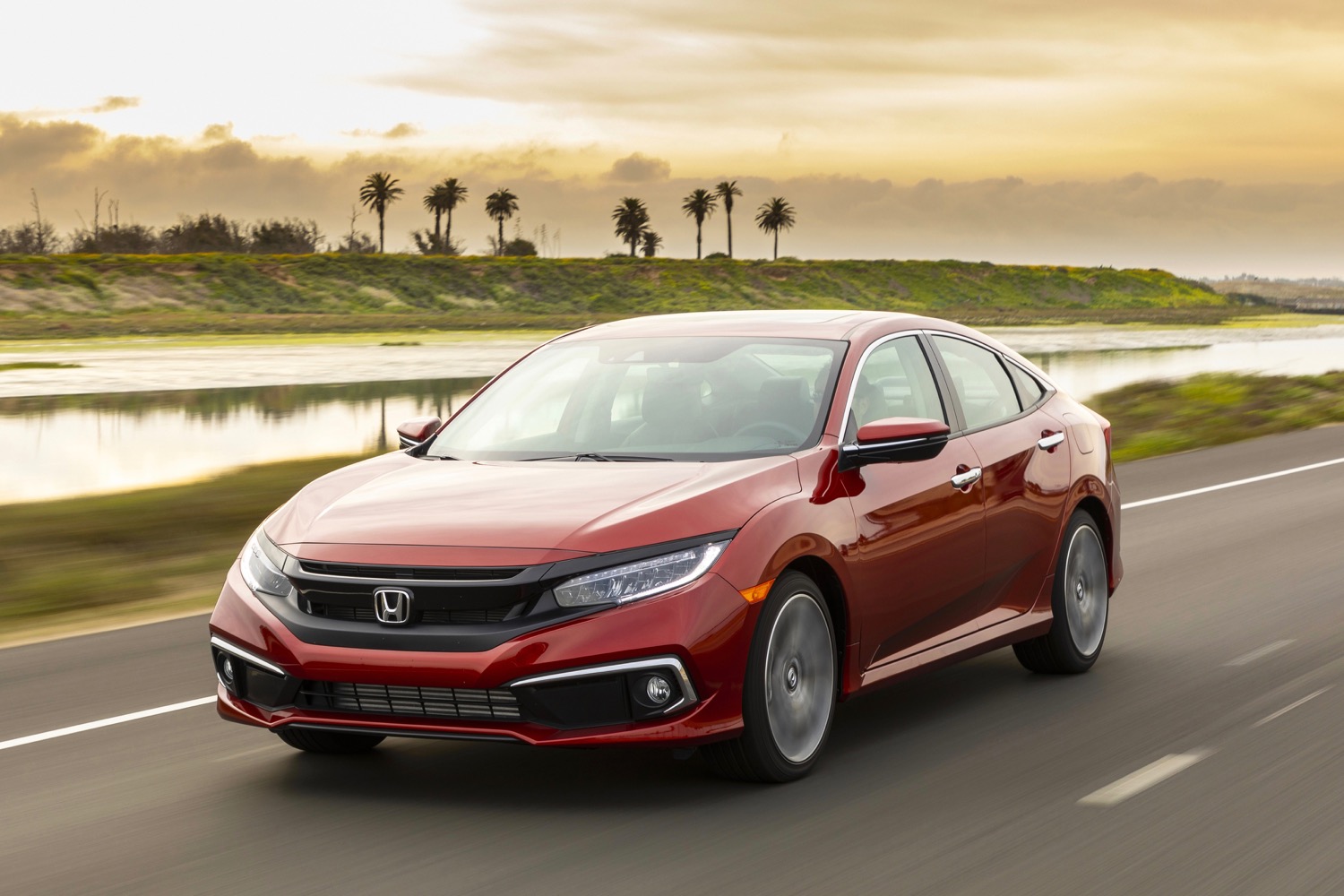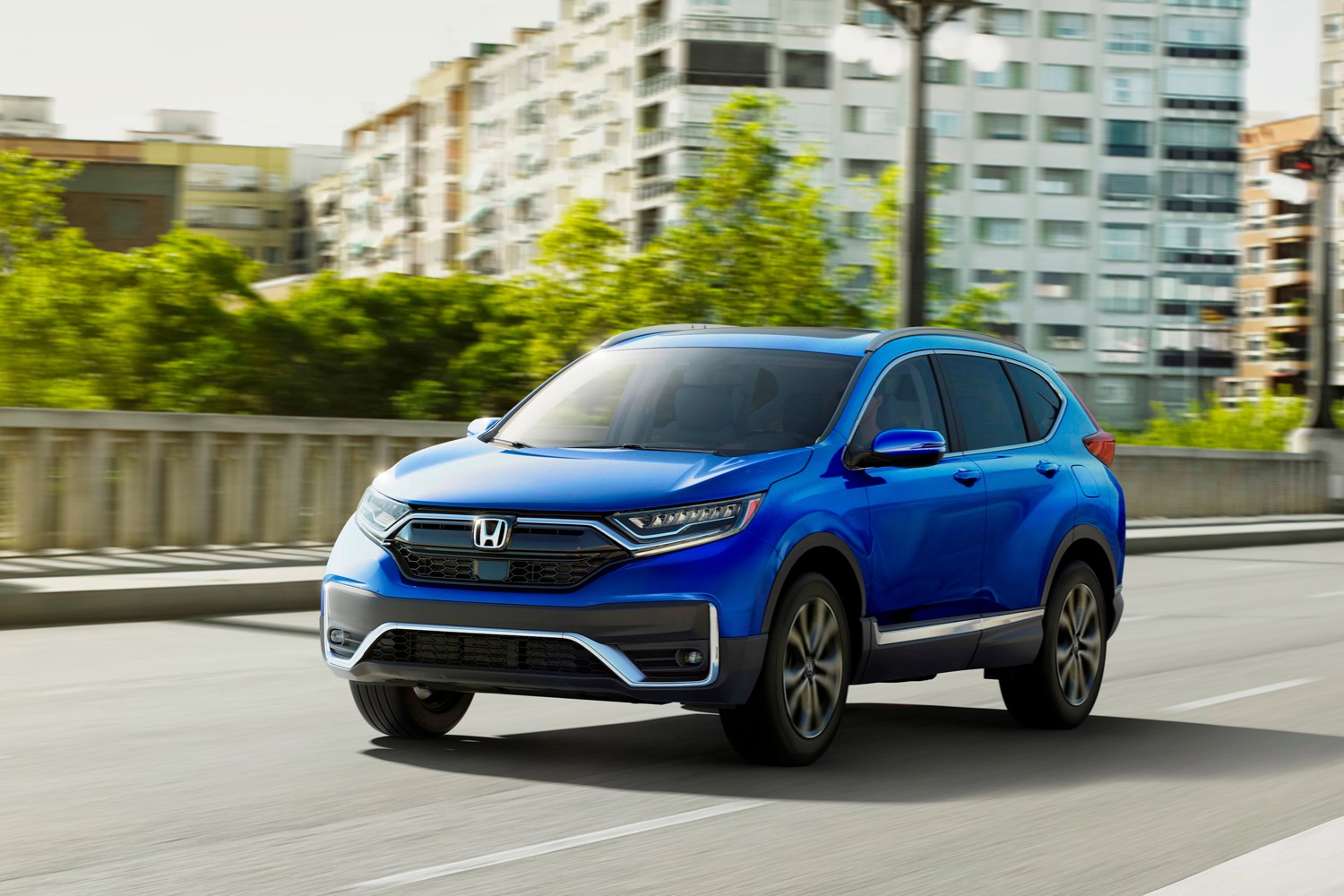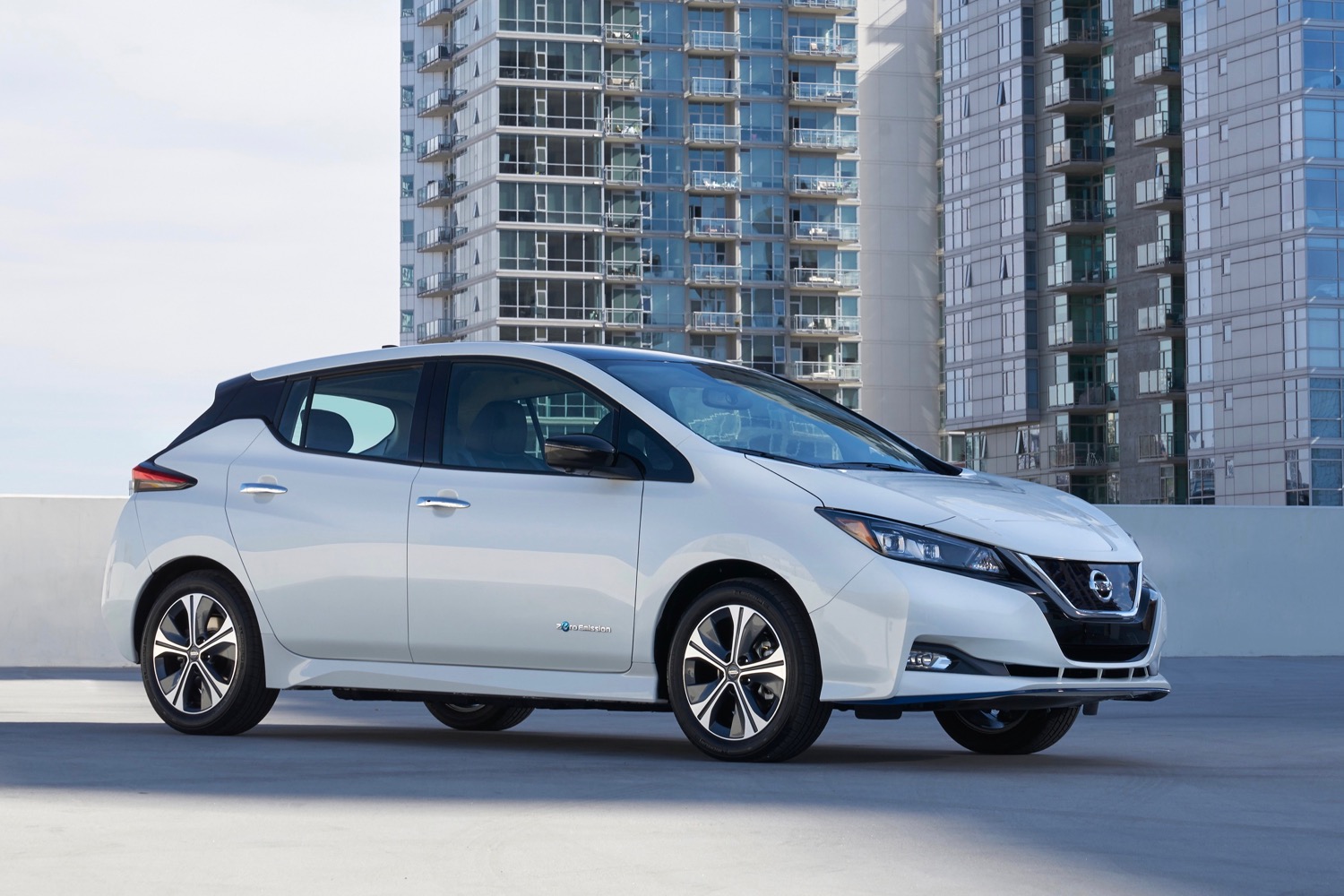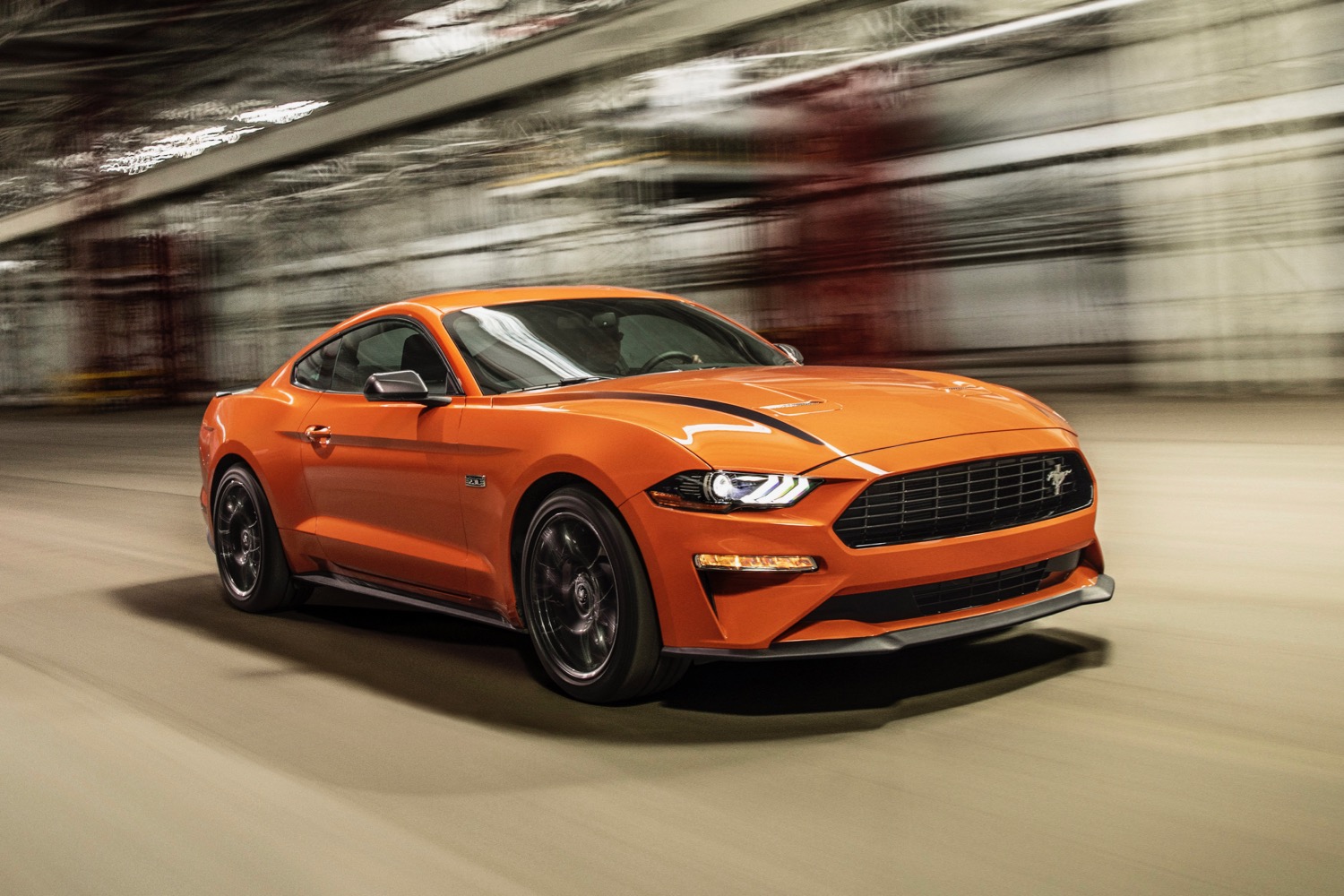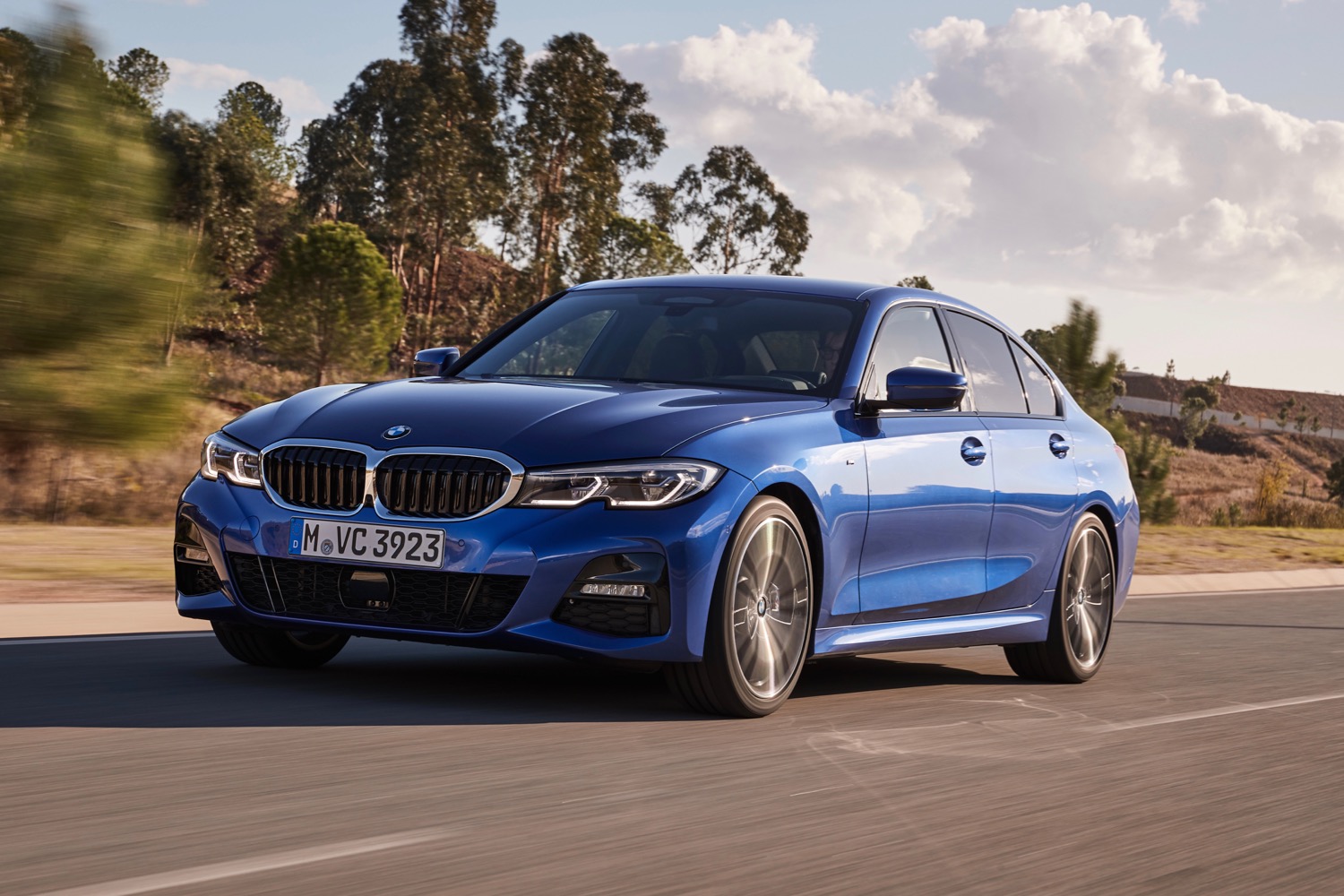Long miles are often put on commuter cars, making drivers want a vehicle that is both fuel-efficient and fun to drive. While big SUVs might be enticing for a weekend trip to the mountains, a commuter car is best when it’s compact and packed with plenty of comfort and tech features.
While Honda dominates our picks for the best overall commuter cars, we also suggest some sporty and luxury options to make sure there’s a choice for everyone. Check out our favorite commuter car if you have a little extra money to spend below.
Honda Civic
The best overall
Why you should buy this: It’s comfortable, fuel efficient, and fun.
Who’s it for: People who spend a lot of time in their cars.
How much will it cost: $20,800+ (sedan), $21,050+ (coupe), $21,750+ (hatchback)
Why we picked the Honda Civic:
Honda’s evergreen compact car has everything you could want in a commuter vehicle. It’s affordable, it has a good reputation for reliability, and you won’t have to drain your savings account to fill its tank. But Honda also gives you a little something extra.
The Civic is one of the best-driving compact cars around. The steering and suspension are precise and quick to react to driver inputs. The 1.5-liter turbocharged four-cylinder engine’s 174-horsepower rating is more than enough to exploit gaps in traffic. But when you can’t go fast, the Civic still impresses with a comfortable ride and quiet cabin that will make long commutes less of an ordeal.
Honda also paid attention to the details when designing the Civic’s cockpit. The seats feel good, and the controls are placed within easy reach of the driver. An available 7.0-inch touchscreen is teamed with a volume knob and hard buttons for important menus, making it easier to use without getting distracted. Apple CarPlay and Android Auto are available as well.
Honda offers plenty of choices, too. You can have a Civic sedan, coupe, or hatchback. If the standard version isn’t sporty enough for you, Honda offers Si versions of the sedan and coupe, and the 306hp Civic Type R hatchback.
Read our Honda Civic sedan review
Honda CR-V
The best commuter SUV
Why you should buy this: It’s an SUV that drives like a car.
Who’s it for: Weekend warriors.
How much will it cost: $25,150+
Why we picked the Honda CR-V: Many buyers want the taller driving position, extra cargo space, and all-wheel drive traction of an SUV, but don’t want to deal with bad gas mileage and truck-like handling. The Honda CR-V was one of the first car-based crossovers that sought to offer those SUV positives without the negatives, and it remains one of the best.
The CR-V feels like it was designed for everyday commuting. It’s by no means a sporty vehicle, but its handling and acceleration feel impressively car-like. Ride quality is excellent, and the interior is one of the most quiet we’ve experienced in this price range. The CR-V also has a solid, confidence-inspiring feel.
The one thing that held the CR-V back was the lack of a hybrid powertrain, leaving the Honda a step behind the rival Toyota RAV4. Honda finally introduced a hybrid CR-V for the 2020 model year, and, while it’s not quite as fuel-efficient as the Toyota, it still returns 38 mpg combined. The 1.5-liter turbocharged four-cylinder engine offered in non-hybrid CR-V models is also more powerful and more refined than its Toyota counterpart.
When it comes to tech, Honda has you covered. The standard Honda Sensing bundle of driver aids includes autonomous emergency braking, forward collision warning, road departure mitigation, lane departure warning, lane keep assist, and adaptive cruise control. The infotainment system includes a 7.0-inch touchscreen and Apple CarPlay/Android Auto compatibility, although it isn’t available on the base LX trim level.
Read our Honda CR-V Hybrid review
Nissan Leaf
The best commuter electric car
Why you should buy this: It’s better for your wallet.
Who’s it for: Eco warriors.
How much will it cost: $31,600+
Why we picked the Nissan Leaf: Electric cars are inherently good commuter cars. The distance of the average commute won’t instill range anxiety — especially if your workplace has charging stations. Stop-and-go traffic allows you to make good use of regenerative braking and get back some energy while decelerating.
The Nissan Leaf offers good value among electric cars, more than a Chevrolet Bolt EV or Hyundai Kona Electric. The Nissan’s base price also undercuts those cars. Granted, that only buys a 40-kWh battery pack with up to 149 miles of range, but that should be more than adequate for daily commuting, provided you can charge at night. Nissan also offers a Leaf Plus model with a 62 kWh battery pack and up to 226 miles of range.
Nissan also makes the transition to an electric car easy. The Leaf’s e-Pedal system combines regenerative and mechanical braking, allowing you to maximize regeneration without guesswork. Aside from its whisper-quiet electric powertrain, the Leaf also feels like any other car, not a futuristic science project. The infotainment system is a bit of a letdown, but at least you get Apple CarPlay and Android Auto.
Read our Nissan Leaf Plus review
Ford Mustang
The best commuter sports car
Why you should buy this: You only live once.
Who’s it for: People who like to have fun.
How much will it cost: $26,670+
Why we picked the Ford Mustang: Not every commuter car needs to be practical. If you want something fun to drive on the weekend, and can live with compromises when it comes to backseat and trunk space, the Ford Mustang can pull double duty as weekday commuter and weekend toy.
It may not be the best choice for carpooling, but the Mustang offers enough space that you won’t feel cramped, as in most traditional two-seat sports cars. Ford’s Sync 3 infotainment system is easy to use (a new Sync 4 system is on the way), and comes standard with Apple CarPlay and Android Auto. Ford also offers a nifty reconfigurable digital instrument cluster as an optional extra.
If gas mileage is a priority, the base 2.3-liter turbocharged EcoBoost four-cylinder engine returns 25mpg combined, and still makes 310hp. Things escalate quickly from there. A performance package for the EcoBoost bumps output to 330hp. Or you can upgrade to a 5.0-liter V8 in the GT, 5.2-liter V8 in the Shelby GT350, or a supercharged version of that engine in the Shelby GT500. Granted, the 760-hp GT500 might be a bit too extreme for daily use.
Read our Ford Mustang EcoBoost HPP review
BMW 3 Series
The best commuter luxury car
Why you should buy this: It’s a step above the average car, and it’s full of tech.
Who’s it for: People who want something a little bit extra.
How much will it cost: $41,250+
Why we picked the BMW 3 Series: The current-generation BMW 3 Series is a bit softer than its predecessors, but that makes it a perfect commuter car. The 3 Series was long considered the greatest sports sedan, but now BMW has mixed in a little more luxury as well.
The 3 Series still has the same old magic you would expect to get with a BMW. The Bimmer has quick reflexes and silky smooth engines (either inline-four or inline-six, with mandatory turbocharging). It also keeps you isolated from bumps and road noise as one would expect to get with a proper luxury car. Enthusiasts may bemoan a loss of sharpness compared to previous generations, but that won’t matter if the vast majority of your driving consists of going back and forth to the office.
BMW has a reputation for creating great driving machines, and the 3 Series is no exception. The suspension delivers the handling you would expect from a BMW, keeping the ride smooth while delivering consistent traction. While some purists may grumble that suspension makes some concessions in the corners, the overall ride quality is second to none.
While the 3 Series is BMW’s entry-level offering, you’ll still find all the luxury features you would expect. Design notes include a sleek, sophisticated interior that offers an amazingly comfortable and quiet driving experience. Everything you come to expect from BMW, at an affordable price.
Though past iterations of the 3 Series felt like a significant step down from other BMWs, the modern take feels much closer to the larger 5 Series on the inside. BMW also offers many tech features, including an available 10.25-inch infotainment screen, a 12.3-inch digital instrument cluster, and a digital assistant that works a bit like Amazon Alexa.
Read our BMW 3 Series review
How we test
Exhaustive testing procedures help our team thoroughly evaluate every vehicle we review. When possible, we send several different experts out to test drive the same vehicle so they can compare their experiences. Compiling different reviews allows Digital Trends to give potential buyers more practical information than other outlets.
Our experts take the cars out on back roads, city streets, and then see how it handles on the highway. We want to make sure you know how each vehicle will handle when you’re driving in a certain situation. Off-road situations and race tracks are also used when applicable. Our test drivers spend extensive time behind the wheel of each vehicle to get an accurate feel of how it handles.
We test every safety feature that we’re able to while using a controlled environment, and the team also examines the qualities of each vehicle’s exterior and interior. Our reviews match vehicles up with similar options in their class so you’re able to purchase the perfect car for your needs.
Editors' Recommendations
- The best SUVs for families
- The best BMWs of all time
- The pros and cons of electric vehicles
- The best-sounding cars
- The best cars currently available
